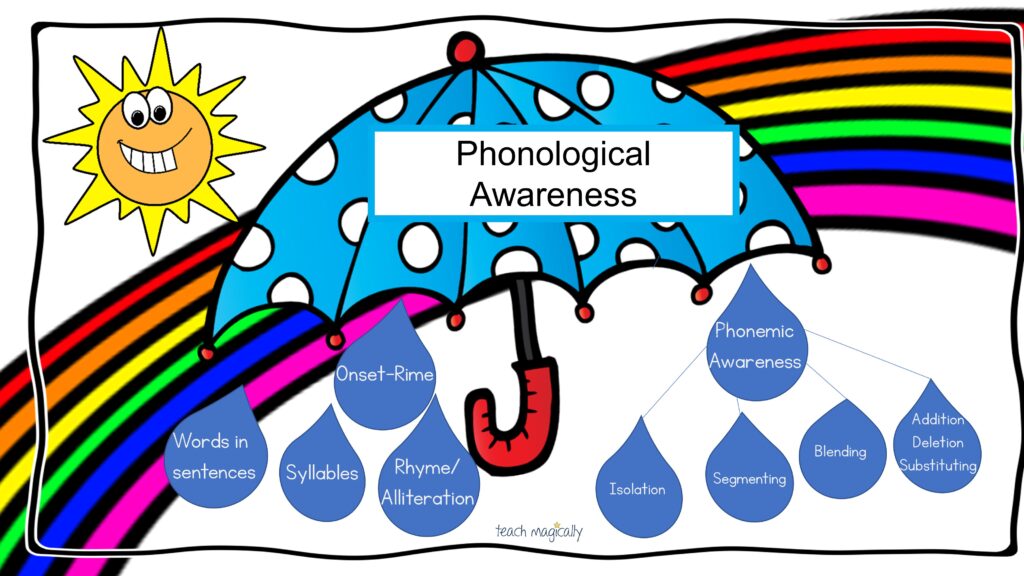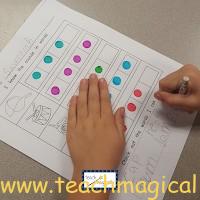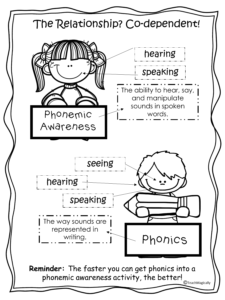“They know most letters and sounds, but are students ready to read?” is a question asked by many parents and teachers of beginning readers. The answer…Maybe, not!
📌THIS IMAGE FOR LATER

The skills for phonological awareness skills must be mastered before the complex skill of reading can be achieved. Yes, students are ready to read when all the phonological awareness skills are mastered.
What is Phonological Awareness?
The ability to hear sounds that make up words in spoken language is a called phonological awareness. It is the big umbrella for all the skills needed to read and write. It is when language can be broken down into its components:
- sentences to words
- words to syllables

Phonological Awareness provides a strong foundation for early reading success. A systematic and cohesive approach to teaching phonological awareness can build confident readers who are less likely to struggle with decoding and spelling skills.
Students with a strong phonemic awareness are much more likely to be successful readers.
PA includes recognizing words that rhyme, deciding whether words begin or end with the same sounds, understanding that sounds can be manipulated to create new words, and separating words into their individual sounds. Check out my phonological awareness page with many ideas to teach these skills! To build a strong reading success, children need to master Phonological Awareness Skills, especially phonemic awareness!
What is Phonemic Awareness?
Phonemic awareness is a subset of phonological awareness in which listeners are able to hear, identify and manipulate phonemes, the smallest units of sound that can differentiate meaning.
For instance, when separating the spoken word “cat” into three distinct phonemes, /k/, /a/, and /t/, requires phonemic awareness. (So jump as you say each sound to make it more fun!)
Research shows that the ability to segment or separate words into parts is the biggest predictor of reading success (Stanovich, 1993).

For example, I like to use these No Prep Sound (phoneme) Worksheets with BINGO dabbers. Students touch one square for each sound! After that, students write letters for the sounds over the top of the dots or the word at the bottom.
Remember Phonemic Awareness only uses the sounds! Phonics happens when you add the letters of the alphabet. When working with beginning readers, I only focus on the sounds that the students have been taught or the ones they know (these are usually the letters in the child’s name.)
Always attach the letter names after the students understand letter names! For students with difficulties learning, add the phonics at the next lesson.
Don’t forget to practice phonological awareness skills!
Teaching phonological awareness builds confident readers who are less likely to struggle with decoding and spelling skills. Therefore, pick 1 skill and practice it daily until mastered then move on to another skill but always revisit.











love the fact you make a clear distinction between phonologial awareness and phonics!Cute ideas! Wendy 1stgradefireworks
Thanks, Wendy!
Awesome post and you did a great job explaining and distinguishing between the two!
Thanks! Hope it helps!
Very thorough, thanks for the tips and info!
You are very welcome!